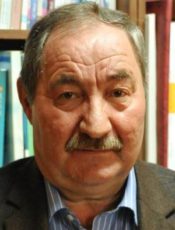When Russia began its air campaign in Syria on 30 September 2015, the West did not believe it would be successful. Damascus had the support of just Russia and Iran, since America prevented Iraq from joining the alliance. Back then, the US president openly mocked the paucity of such a coalition and a second Afghanistan was predicted for the Kremlin.
Just five and a half months later, however, most of the Russian forces were withdrawn from Syria, with little impact on the military capabilities of the Syrian army and its allies. Since 27 March, the black flags of Daesh are no longer flying over Palmyra. The city has been completely cleared of militants and is now under the control of the Syrian authorities.
The liberation of Palmyra has dealt a huge moral blow to the ‘caliphate’, which up to that point had not experienced failure in its capture of new territories. Incidentally, when Palmyra was occupied by jihadists last year, many predicted that the fall of this strategically important centre would be followed by the fall of Bashar al-Assad. Now, however, these predictions are forgotten.
The liberation of Palmyra would have been impossible without Russian support. This fact has also been openly acknowledged by President al-Assad, who points to the lack of any serious intention by the Western coalition to counter terrorism and the meagre results achieved by the Americans. Washington is in no way embarrassed by this, however. America’s desire to reshape the world in its own image is preventing its politicians from accepting America’s responsibility for the spread of terrorism in the Middle East.
Syria is just one of the countries that has experienced the devastating effect of US policy. And the fact that the US State Department is refusing to recognise the liberation of Palmyra as a success in the fight against the Islamic State is completely understandable. The US State Department’s deputy spokesperson, Mark Toner, has revealed the plan of action favoured by Washington: to establish a ceasefire, end the civil war, and «then we can talk about cooperation against Daesh».
The question is not even when this «then» will come. The question is what kind of future awaits Syria. On this point, Toner said that the Syrian people should not have to decide between ISIL and Assad. So according to the White House’s logic, the current president needs to be removed first and the fight against the Islamic State can wait. Evidently, this should be used as the starting point when predicting the future policy of the US regarding Syria.
The successful operation to liberate Palmyra has also transformed the course of events in Syria to the disadvantage of the US. Details of the battle suggest the possibility of further developing offensives on jihadist positions with a view to defeating them on Syrian soil.
The operation to liberate Palmyra took three weeks. The offensive on the city began with a preliminary strike by Russian pilots on 9 March. Advancing Syrian troops were provided with air support on an almost daily basis. On 26 March alone Russian aircraft carried out 40 sorties and launched air strikes against 158 terrorist targets.
The complete defeat of IS is still a long way ahead, but the road to an offensive is now open. Palmyra is a key transport hub between the central, southern and northern parts of Syria. Preparing new offensives will not interfere with the peace process, since the truce does not apply to the war against IS. The cities of Al-Raqqah and Deir ez-Zor are still in the hands of jihadists. Desert is the only thing separating them from Palmyra and the roads leading to them are now under the control of the Syrian army.
It seems that this is also making Washington and London uneasy. Barack Obama and David Cameron have not commented on the recapture of Palmyra. «The biggest military defeat that Isis has suffered in more than two years. The recapture of Palmyra, the Roman city of the Empress Zenobia. And we are silent», writes the British newspaper The Independent. «Yes, folks, the bad guys won, didn’t they? Otherwise, we would all be celebrating, wouldn’t we?»
And that’s just it. Not everyone in the US is pleased about the defeat of IS militants. Republican Rudolph Giuliani made a shocking statement live on Fox News that Hillary Clinton could be regarded as one of the founders of the Islamic State. Iran alleges that the US is even now still providing military aid to IS. Chief of Staff of the Iranian Armed Forces Major General Hassan Firouzabadi has told journalists that US military planes make regular flights to airports in terrorist-controlled cities to supply the terrorist group with weapons, money and foodstuff. The Iranian military authorities are of the opinion that the Americans are merely observing the fight against IS and are doing nothing.
Could the US hinder the Syrian army’s continued fight against the jihadists?
It is likely that it will try to do so for fear of the government forces’ successes having a direct influence on the negotiations for a political settlement and a change in attitude of the international community towards Bashar al-Assad for the better.
Incidentally, the first statement made by the Syrian president on the liberation of Palmyra was at a meeting in Damascus with a delegation of parliamentarians, intellectuals, scientists and journalists from France. Public opinion is also changing in favour of Damascus in other European countries. Has the time not come for Europeans to recognise that the successes in the fight against terrorism in Syria which have stabilised the situation in the country were achieved solely thanks to Russia?









